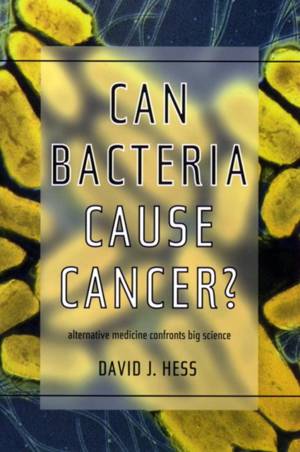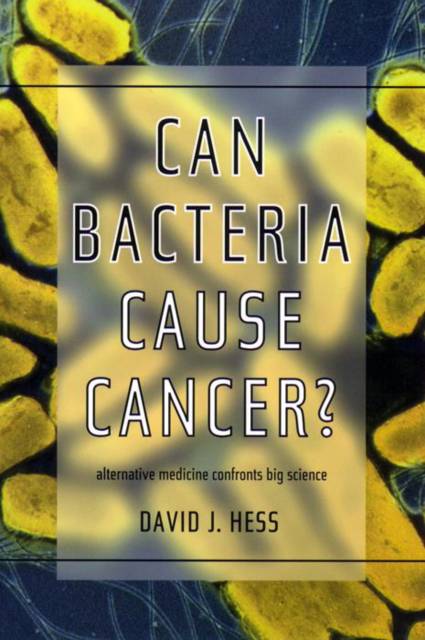
- Retrait gratuit dans votre magasin Club
- 7.000.000 titres dans notre catalogue
- Payer en toute sécurité
- Toujours un magasin près de chez vous
- Retrait gratuit dans votre magasin Club
- 7.000.0000 titres dans notre catalogue
- Payer en toute sécurité
- Toujours un magasin près de chez vous
Can Bacteria Cause Cancer?
Alternative Medicine Confronts Big Science
David J HessDescription
Growing numbers of cancer patients are exploring diet, food supplements, herbs, and nontoxic immunotherapies like bacterial vaccines as a means of therapy. Yet most cancer research organizations refuse to even evaluate these alternatives. Can Bacteria Cause Cancer? argues convincingly that unless this neglected world of alternative therapies is properly scrutinized, the medical Vietnam of the twentieth century may well affect one in two people by the twenty-first century.
David J. Hess investigates one of the great medical mysteries of the twentieth century--the relationship between bacteria and chronic disease. Recently scientists have overturned long-held beliefs by demonstrating that bacterial infections cause many ulcers; they are now reconsidering the role of bacterial infections in other chronic diseases, such as arthritis. Is it possible, Hess asks, that bacteria can contribute to the many other known causes of cancer?
To answer this intriguing question, Hess takes us into the world of alternative cancer researchers. Maintaining that their work has been actively suppressed rather than simply dismissed, he examines their claims---that bacterial vaccines have led to some dramatic cases of long-term cancer remission--and the scientific potential of their theories. Economic interests and cultural values, he demonstrates, have influenced the rush toward radiation and chemotherapy and the current cul-de-sac of toxic treatments.
More than a medical mystery story, Can Bacteria Cause Cancer? is a dramatic case study of the failure of the war on cancer.
Spécifications
Parties prenantes
- Auteur(s) :
- Editeur:
Contenu
- Nombre de pages :
- 242
- Langue:
- Anglais
Caractéristiques
- EAN:
- 9780814735619
- Date de parution :
- 01-10-97
- Format:
- Livre relié
- Format numérique:
- Genaaid
- Dimensions :
- 158 mm x 235 mm
- Poids :
- 480 g

Les avis
Nous publions uniquement les avis qui respectent les conditions requises. Consultez nos conditions pour les avis.






